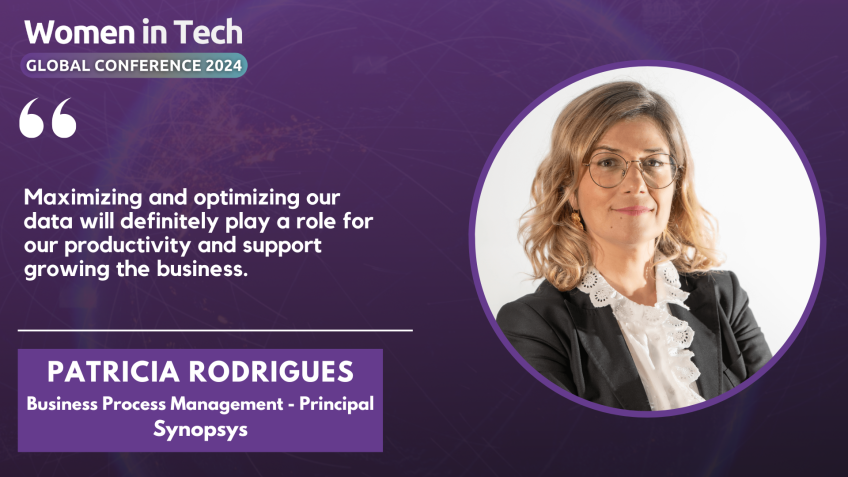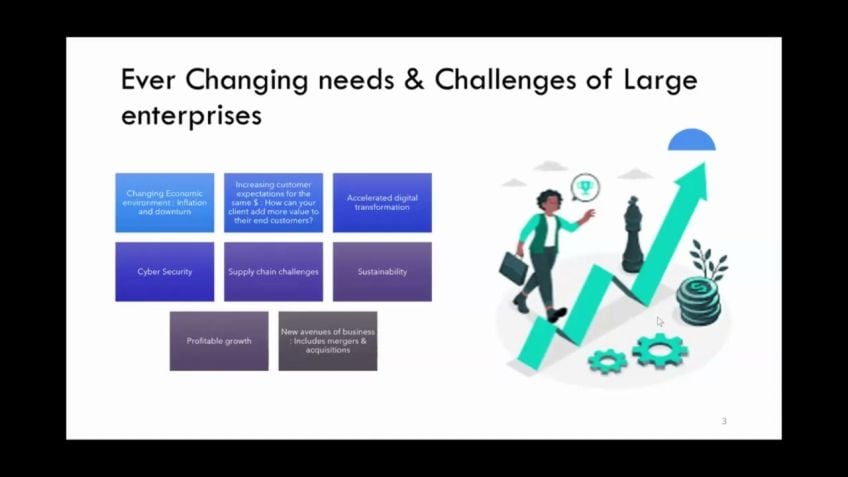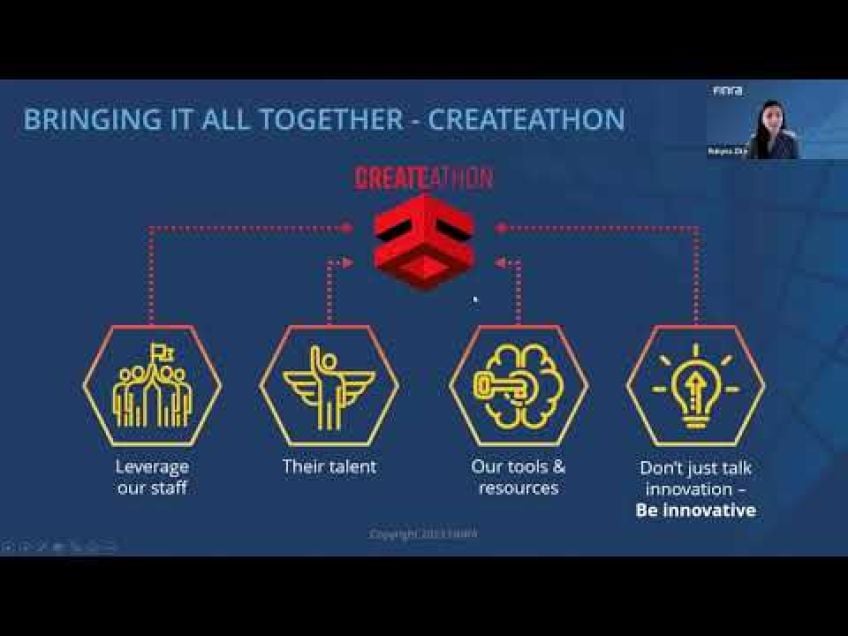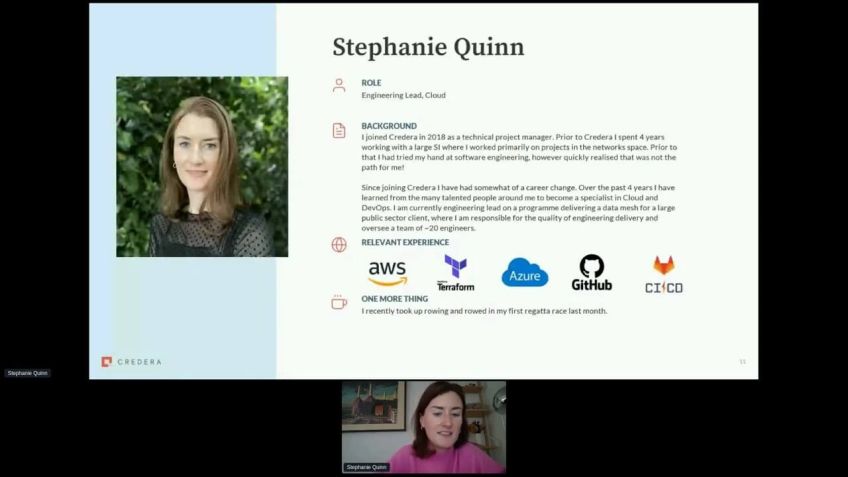How to unlock the value of data for all with data-driven innovation?
Lorrayne Porciuncula
Executive DirectorUnlocking the Value of Data for All: A Perspective by Lauren Puma, Executive Director of the Data Street Initiative
Named as the new gold rush, data holds immense potential. However, how we unlock this potential responsibly, ethically and inclusively is the crux of the matter. Lauren Puma, Executive Director of the Data Street Initiative, recently spoke at a women's tech conference to discuss this important subject.
Narratives around Data Matter
Firstly, Puma emphasized the growing and diverse world of data where traditional analogies often fall short. Data is unique as it bears characteristics that make it non-rivalrous, multi-dimensional, and capable of replication. She highlighted the need to develop new narratives that can capture this complex nature of data, moving away from viewing it as simply oil, air, water, or labor.
Unlocking the Value of Data for All
Her second point focused on the lingering opportunities with data that's hoarded and not shared, emphasizing on how it's crucial to think about unlocking these for the sake of public interest, climate change, and economic and social value. The goal, according to Lauren, is to create an equitable data society that distributes this created value to all.
Responsibility in Data Use
Concurrently, thirdly, is the need for responsibility in the use and re-use of data. Puma advocated for data accessibility and increased availability for the public interest, but not without instituting traceability and compliance mechanisms to prevent misuse.
Embracing Agile Frameworks
Her fourth argument was around adopting agile frameworks to address new problems arising from the evolving data landscape. Approaches like testing using Sandboxes or creating data sharing communities can help us intertwine data governance with technological innovation.
Building Collaboratively Governed Data Sphere
Lastly, Puma insisted on the need for fostering collaboration and inclusivity to bridge silos within and between sectors. Building trust and transparency between public and private sectors will play a significant role, she affirmed.
'Most importantly, what we need is narratives that bring us together to build a collaboratively governed datasphere that benefits everyone.'
Audience Questions and Engagement
At the end of her talk, Lauren fielded a range of questions, addressing curiosity around aspects like data storytelling, data visualization, and getting beyond the 'gold rush mentality.'
Concluding Words
Lauren's session emphasized treating data not arbitrarily as an asset, but more as a complex relationship that needs to be managed responsibly, ethically, and inclusively. All in all, opening the dialogue on data narratives and formulating innovative methodologies for unlocking the value of data responsibly is the key to extending its benefits to all.
Connect with Lauren Puma on LinkedIn to continue the conversation on this topic. Lauren's passion for data and its responsible use is infectious, making her a go-to authority on the subject.
Video Transcription
Hello, everyone. My name is Lauren Puma. I'm the Executive Director of the Data Street Initiative, a nonprofit foundation with the mission to responsibly unlock the value of data for all.I'm honored to be speaking at a women's tech conference today and I'd like to share some thoughts on what this mission uh really means and why it matters for our future. Uh I would love if you can introduce yourself uh in the chat for those who are watching and also asking questions. Um OK, so today, I have five points I'd like to make. Um The first one is that narrative is around data matter that is not really oil nor it is air water labor. All ego analogies are useful to approach unfamiliar situations but taking them too literally can lead to misguided choices. Data is multidimensional and pretty unique in its characteristics for one differently from traditional goods and services. Data is non rivalrous. Um It, some would say that is an exit. Uh also would say that it's critical infrastructure for our 21st century. But the bottom line here is that the world of data is growing and it's diverse. It's prone to overlapping modes of classification, personal data, nonperson, data, anonymized data data can be replicated and combined in numerous value chains um without being depleted data uh that can be churned.
Also using new techniques such as privacy enhancing technology and the relation between data, human groups and norms is increasingly complex. This is what we call the data. And because it's so complex, we need new words and new narratives often to capture that complexity. And that's what gets me to the second point which takes us from what data is for what it can do for us. The second point is that it's crucial that we consider how to unlock the value of data. For all, we need to think hard about the missed opportunities from data that is hoarded and not shared. We need more data access to data and re ability for use cases such as addressing climate changes or or global pandemic. But we also need to strive for maximizing value that is not only economic but also social value, which includes the public interest. And for doing so, we should set a clear goal to establish a more equitable data society that distributes the value created to all. And this gets me to my third point on responsibility or responsibilities while we need to unlock the valid data. For all, we also need to take responsibilities for the use and the reuse of data completely open data should not be the only alternative to closed data, there's a spectrum in between.
And when I say responsibility, I also mean that we have to have a responsibility to make more data available for the public interest and to do it responsibly within the spectrum of open versus closed in compliance uh in compliance which is very difficult. There must be a way uh that we can actually look into opening data, unlocking the value data in a way that is responsible. So, traceability and compliance mechanisms are essential to ensure that data access is appropriately controlled. And this gets me to my fourth point. And here I want to talk about agile frameworks. We cannot keep using this the same tools and the same photos to solve new problems. We need innovation through agile frameworks that are, that can recognize the international dimensions and the constant updating from complex adaptive systems.
There are a number of possible approaches to test sandboxes, uh and operational sandboxes or regulatory sandboxes. For example, can be experimental frameworks to test these dynamics of a system and conduct uh also different impact assessments in a way that is more intuitive a protocols approach.
For example, can enable the uh the formation of data commons or data sharing communities with appropriate governance charters to leverage new techniques such as privacy enhancing technologies. But the point is that we need to think with big bold ideas, we need to think about what are Moonshot ideas that can get us closer to creating a more collaboratively governed at sphere. And this takes me to my uh last point about coming together to build a collaboratively governed atmosphere. This conversation that we have today in international level is still too siloed and too much concentrated within the global North. We need new voices. We need the Google South to be present and we need this conversation to uh to make a bridge between the private and the public sector. We need it uh to make a bridge between uh different stakeholders and have a really multi stakeholder conversation between different um different uh economic sectors and social sectors in society. Because this is one of the key questions of our century, how are we going to come together to design the digital future that we want and how are we going to manage a system that can responsibly unlock the value of data?
For all, for me, this will take building trust and transparency between public and private sectors in creating new governance structures that are bottom up that are more dynamic and also recognizing the importance of digital self determination of individuals and communities and not only of states.
And this will also take testing new tools for collaboration using mechanisms that are iterative and that are flexible rather than being linear and static of really shifting the focus from only the technology solutions to the people. And recognizing that the narratives that we have matter that they have the power to either alienate people or bring them closer within narratives that are able to take in all of this complex hypergraph of vectors of potential tradeoffs are also of also the benefits and the cost of unlocking the value of data for all responsibly.
It's not an easy ro uh road ahead. And it's not certainly, certainly one that we can uh make it uh ourselves by ourselves. So most importantly, what we need is narratives that bring us together to build a collaboratively governed datas sphere that benefits everyone. And so this is our mission uh at the at the data three initiative to make sure that first that we are talking about these narratives on why data matters to having conversation about data, but also to making sure that we are pinpointing how to unlock the data for all. And that we're looking to the dimensions that are not only economic but also social, but also looking into how to do that responsibly to make sure that we are attuned to the guardrails that are necessary to prevent any abuses and also to mitigate the different digital risks that exist.
But we're looking at from a perspective that is new and it's also fresh uh in terms of how we can actually do that by building a gile frameworks that respond to challenges in a way that is innovative and that we can, that can bring different actors uh together. Because the last point is that we need to manage the the datas spe this complex relationship between data actors uh and, and norms uh in a way that is more dynamic and that brings everyone together. Um And that's what I wanted to share with you today. I would, I would love to uh to get questions from you as well. Uh So that we can have a conversation on why you think that matters. Um Why we should be unlocking the value of data. What are the different dimensions on how to think about that in a way that is responsible and how, what this represents in your reality as well. I love to use this moment to identify a allies uh why it matters for your work um for you as an individual. Um And I'd love to get the conversation started. Thank you so much. So if you'd like to um open the mic uh and introduce yourself or uh speak in a chat, I'm told that we have 10 minutes for uh an exchange. If that's of interest to, to you, you can also introduce yourself in a chat. So just ask a question. Um And I can be more specific about the different um projects that uh that I work in different countries.
Uh We have some exciting things um happening where we're working with different policymakers in uh uh in Africa, but also Latin America and I have one question, the Q and A. So I have a question from Elaine move. Thank you. So much Elaine. Uh and she asked me, what do you see it is the most useful thing that can be unlocked from data um that you have worked with. Uh I think data has the power to really uh shift their perspective uh on things. Um And uh and particularly to shed light on, on issues that we had, we didn't even know that we were looking for in terms of uh in terms of questions. Um I have a very good example uh when I worked in the telecommunications sector where uh the, the regulator, uh one of the key issues that uh that existed in the city of Mexico was on the, on the lack of, of uh spaces for antennas uh in Mexico City for, for telecommunications.
And um what they did is that they brought together information on the available rooftops from public buildings, they put in a system almost like a rooftop Airbnb for public buildings so that private companies could actually rent those uh uh those rooftops uh And uh and use to actually close the gap on the number of antennas they needed.
And this is a matter of making the data uh available uh in public interest kind of uh uh kind of solution that uh was able uh to bridge this information symmetry that existed between different actors um and also uh create a sort of a revenue or for the public sector. Um I have a really interesting question. From Emma uh Connolly. Thank you. How do you think we can get past how that is seen as the new gold rush? What's the best way to get companies to share something with a large financial value? Um And I think the problem, as I started saying, uh is the narratives that we have. It seemed that because it's seen as a, as a scarce resource, everyone's rushing to get this. Uh and they hoard data and they think they're gonna make uh uh more money just by keeping data for themselves. But often what happens is that uh you may have partners and uh who are in the public and the private sector that can not only draw value themselves from this data sets that you're hoarding but also make, make uh create more value for you. Uh And it's interesting because um here one plus one does not equal to when we're talking uh uh about data. There's a very interesting example about data sharing from the private sector also that I'd like to share.
Um And that's the case uh on the, on the case that we are actually working on and that's on the sharing of uh data on CO2 emissions. There's new European regulation um on scope three, that actually uh requires companies to share the CO2 emissions alongside their value chain.
And what happens is that most actors do not, not ill willing to share data with their potentially competitors, uh potential competitors because this can be industrial secrets around, you know, details on how you are actually emitting CO2. And we're working with a foundation in Germany that um came up with a system using privacy enhancing technology where you can actually pull your data and, and get the results uh and the aggregated using uh encryption and a specific type of encryption where you put your data in.
But no one really can pinpoint on that, that specific data point from a company. But everyone benefits from the AGG aggregate data uh and intelligence coming out of this which then meets uh the requirements from the European regulator. Uh And for me, that's a brilliant example of how we can actually get past the notion of a gold rush and everyone keeping data for themselves and using new mechanisms, which as I said, they sit in the spectrum between open and closed and you can actually uh have uh mechanisms, the mechanisms that can uh get you to what you want data for and what you want data to do to you and how to share it to unlock that value for everyone.
And I think that's a really good example on how private actors coming together to share data that typically they would not like to share, not only contribute to creating more intelligence for themselves uh exponentially, but also to the society as a whole. When you actually have more transparency uh around um CO2 emissions, for example, which is extremely relevant for ESD reporting for uh impact assessment, but also for climate change in general. Um So thank you so much Emma for, for, for the question, which is something that we are we're very passionate about. And that's, that relates to one of the projects that we're doing around making sure that not only leveraging technology but also creating the governance mechanisms because often it's not the technology that it's uh it's the the point of tension. It's actually uh the fact that you can't get um lawyers to sit around the room and agree on what can be shared and cannot be shared. And that's what we're working on, on, on governance mechanisms and uh and templates to help data sharing communities or to be communities to share that data uh and get out of that loop of uh of, of narratives of a of a gold rush.
And I get uh another question to check. Uh Would you recommend the visualization of data only to be done by it and data engineers or would you advise customers to have direct access to data to make their own reporting? I I think that customers and subjects um always uh have something to add when we're thinking about reporting because uh it or data engineers, they are, they, they may be experts on the data techniques in itself. But subject matter expertise is something else entirely uh which you need uh to know for you to understand what you're reporting to and what are the questions you're asking? Um Hello, Lorraine, I'm it project manager from Nigeria. How can improve data story telling? Really make our stakeholders across different levels to understand why data matters? You mentioned something about social dimension of data in the introduction, how that can be leveraged in the workplace? I think ultimately, what we try to bring with the with the concept of the data here is to make sure that we understand that we are in an ecosystem where we are part of the relationship of data, that we, that we have an impact of it or on it. And that it's not only data desegregated to ourselves, but also what data means uh uh for us and what we want to do with data.
So I would say it's really getting people involved in trying to understand what are the questions that you want to be uh asking what is your goal? And ultimately, it's very easy for us to think. First of all, the two rather than thinking of what is our objective. And I think once you start asking what is your policy goal, your corporate goal or individual goal, you can try uh to start uh asking the questions of uh on the data to see why you should care about it. I think you need, we, we need to be uh very uh um intentional about what we're doing with data rather than thinking about opening closing reporting or not visualization or not or what are we actually trying to achieve out of it? Um And I think that's um that's the key aspect of it. Um And I have to say that for me as an economist who's been working with a for a while, uh the, the questions that I asked for the data set and the models that I did only made made sense when it was a subject that I cared about. So I think it's not about the data in itself, but the question that you're trying to answer, be it in the, in the perspective of a company or the perspective of uh uh of a, a public organization, for example.
So really getting people to care about uh the why, why we're doing that? Um I, I read that we have only one minute to go. Uh Thank you so much for the questions. There's a lot more uh that we could be talking about this. And uh uh I love that you, you connected uh and engaged in the chat. That's what I wanted from this talk. I would love to um connect on linkedin if that's something that uh you want to continue uh uh chatting about. It's wonderful to be part of uh other women in tech conference. And I thank you so much for, for joining uh my short session today. Um And please be in touch if uh you're also as passionate about data as I am. So, thank you so much.






